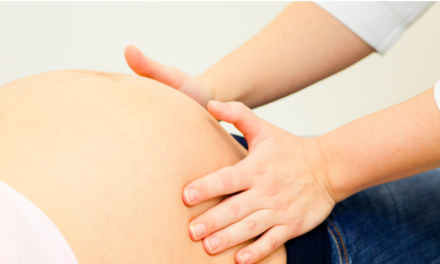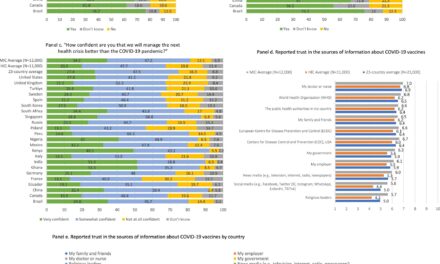Situation at a glance
Description of the situation
On 15 August 2024, the Swedish authorities notified WHO of a confirmed case of mpox due to clade Ib MPXV in an individual aged between 30-40 years.
On 12 August, the individual travelled to Sweden from an outbreak-affected country in the African region with mild clinical symptoms of mpox. The travel itinerary included more than one transit and some longer stopovers. On 13 August, the traveller sought medical care in Sweden and samples were collected for laboratory confirmation and virus characterization. On 14 August, mpox was confirmed by polymerase chain reaction (PCR). On 15 August, findings from whole genome sequencing by the Public Health Agency of Sweden revealed clade Ib MPXV infection. The patient is currently isolated and receiving care in Sweden.
In Sweden, the patient reported one close contact (a travel companion) who is being monitored and is in contact with health authorities in the country. The contact had a sore throat but tested negative for mpox on 16 August 2024.
Epidemiology
Mpox is an infectious disease caused by the monkeypox virus (MPXV). There are two known clades of MPXV: clade I, previously called the Congo Basin clade, which includes subclades Ia and the recently identified Ib; and clade II, previously called the West African clade, which includes subclades IIa and IIb. Subclades Ia and Ib have been defined based on the emergence of subclade Ib in the South Kivu province of the Democratic Republic of the Congo in 2023. Subclade Ia is currently considered to encompass all other strains of Clade I that are not Ib.
MPXV transmits between humans through close contact with lesions, body fluids, infectious respiratory particles or contaminated materials, or (in endemic areas) from animals to humans through contact with live animals or consumption of contaminated bushmeat. Mpox causes signs and symptoms which usually begin within 3-7 days of exposure and can start as soon as two or rarely up to 21 days later. Symptoms typically last for two to four weeks but may last longer in someone with a weakened immune system. Normally, fever, muscle aches and sore throat appear first, followed by skin rash and mucosal lesions. Lymphadenopathy (swollen lymph nodes) is also a typical feature of mpox, present in most cases. Transmission through sexual contact has been observed to lead to the appearance sometimes of only genital lesions. Children, pregnant women and people with weak immune systems are at risk of developing complications and dying of mpox.
It is important to distinguish mpox from chickenpox, measles, bacterial skin infections, scabies, herpes, syphilis, other sexually transmissible infections, and medication-associated allergies. A child or adult with suspected mpox may have chickenpox or even both infections at once. For these reasons, laboratory testing is important for confirmation of mpox, particularly for the first cases in an outbreak or new geographic area.
The primary diagnostic test for MPXV infection is polymerase chain reaction (PCR). The best diagnostic specimens are taken directly from the rash – skin, fluid or crusts – collected by vigorous swabbing. In the absence of skin lesions, testing can be done on oropharyngeal, anal or rectal swabs. However, while a positive result of oropharyngeal, anal or rectal sample confirms mpox, a negative result is not enough to rule out MPXV infection. Testing of blood is not recommended as any viremia is usually brief. Serology does not distinguish between different orthopoxviruses and is therefore restricted to reference laboratories where antibody detection methods may be applied for retrospective case classification or in special studies.
Treatment is based primarily on managing clinical symptoms, ensuring skin care, reducing pain, and preventing and managing complications. Where available through clinical studies or emergency or compassionate use programmes, specific antiviral medications such as tecovirimat can also be used in the treatment of mpox, particularly for severe cases or individuals at higher risk of complications.
Vaccines are currently available for use to prevent mpox in some countries. WHO recommends use of MVA-BN or LC16 vaccines, or the ACAM2000 vaccine when the others are not available. Vaccination is recommended by WHO for individuals at high risk of exposure.
Public health response
- Sweden has maintained its testing and sequencing capacity for MPXV. Sweden continues to monitor reports of mpox and conduct both epidemiologic and microbiologic analyses. Mpox is classified as a notifiable disease in Sweden which mandates reporting of cases to the Public Health Agency of Sweden.
- Authorities in the relevant countries where the case transited have been notified by Sweden to facilitate public health measures where indicated.
- A press release was issued by the Public Health Agency of Sweden on 15 August 2024.
- A joint WHO/ECDC information session on mpox for Member States in the WHO European Region was conducted on 16 August 2024; Member States were reminded about the WHO Director-General’s Standing Recommendations on mpox (which have been extended until 20 August 2025) and reporting obligations through the European Surveillance System (TESSy) and IHR channels.
WHO risk assessment
Regardless of geographic area, epidemiological context, gender identity or sexual behaviour, individual-level risk is largely dependent on individual factors such as potential exposures and immunity status.
This case represents the first ever report of mpox due to clade I MPXV outside of the African region. Further sporadic cases may be expected, whether among travelers from endemic areas / countries or appearing through community transmission without any travel link. Further spread of the disease within Sweden from this first case was assessed by Swedish authorities as very low due to the appropriate public health measures that have been put in place. However, the travel history of this case is still under investigation, and the case was experiencing symptoms (and was therefore likely to be infectious) during international travel. To date, this appears to be an isolated case for which one close contact is under monitoring.
WHO advice
On 21 August 2024, WHO published the Extension by the Director-General of the Standing Recommendations for Mpox, following the declaration of a Public Health Emergency of International Concern for the upsurge of mpox and in accordance with the International Health Regulations (2005).
In addition, WHO has issued temporary recommendations to States Parties experiencing the upsurge of mpox, including but not limited to the Democratic Republic of the Congo, Burundi, Kenya, Rwanda, and Uganda. All these have been shared on the WHO website.
WHO strongly advises that countries continue to follow the WHO Director-General’s Standing Recommendations issued in August 2023, particularly concerning epidemiological surveillance of mpox and the strengthening of laboratory diagnostic capacities. Additionally, countries must ensure diagnostic capability to detect both MPXV clades and subclades.
There must be sustained implementation of risk communication, community engagement and infodemic management (RCCE-IM) appropriate to each context, maintenance or initiation of vaccination (where available) for persons at risk of exposure, optimal case management, adherence to infection prevention and control measures, strengthening research to better appreciate modes of transmission in different contexts, and sustained support for the development of rapid diagnostic methods and treatments adapted to the needs of patients.
Where virus circulation remains low, health authorities should strive to eliminate human-to-human transmission of mpox and ensure that capacity for outbreak response is maintained. Health facilities should ensure health workers maintain high vigilance to rapidly identify and isolate suspected or confirmed cases of mpox.
Anyone with a clinical or laboratory-confirmed diagnosis of mpox should follow the instructions of health authorities according to the local context, including isolation, either in a health facility or at home (as outlined in the WHO Clinical management and infection prevention and control for monkeypox: interim rapid response guidance, 10 June 2022), until they do not present any mpox symptoms and the scabs have fallen off and a fresh layer of skin has formed underneath, which usually takes from 2 to 4 weeks.
Persons with mpox should avoid travel, including international travel, until the infectious period is over, unless travel is necessary for urgent medical care or humanitarian reasons. Contacts of a confirmed case are asked to be under health monitoring and to limit their movements including non-essential travel (and, if relevant, to abstain from sexual relations) for 21 days, the maximum incubation and monitoring period for appearance of possible symptoms.
In terms of risk communication and community engagement, countries are encouraged to
- continue to engage closely with affected communities, including men who have sex with men and sex workers, to promote the uptake of protective measures.
- provide information to all travelers, and particularly to travelers to or from countries where mpox is currently being reported, including public health advice at points of entry; also provide information for diaspora populations from affected countries.
- ensure that all communication and interventions are conducted in a stigma-free manner, with messaging that is respectful, inclusive, and avoid reinforcing negative stereotypes or discrimination.
WHO recommends vaccination against mpox for people most at risk of contracting the disease, taking into account recommendations of the WHO Strategic Advisory Group of Experts on Immunization (SAGE).
For specific antiviral treatments currently being assessed for effectiveness against mpox, such as tecovirimat, access is possible through national request to WHO under the WHO Monitored Emergency Use of Unregistered and Investigational Interventions (MEURI) protocol or for compassionate use, or by direct purchase from the manufacturer.
States Parties are recommended to encourage authorities, health and care workers and community groups to provide travelers with relevant information to protect themselves and others before, during and after travel to events or gatherings where mpox may present a risk.
WHO does not recommend any restrictions for travel or trade.
Further information
- First meeting of the International Health Regulations (2005) Emergency Committee regarding the upsurge of mpox 2024, 19 August 2024. https://www.who.int/news/item/19-08-2024-first-meeting-of-the-international-health-regulations-(2005)-emergency-committee-regarding-the-upsurge-of-mpox-2024
- Standing recommendations for mpox issued by the Director-General of the World Health Organization (WHO) in accordance with the International Health Regulations (2005) 21 August 2023 (IHR). https://www.who.int/publications/m/item/standing-recommendations-for-mpox-issued-by-the-director-general-of-the-world-health-organization-(who)-in-accordance-with-the-international-health-regulations-(2005)-(ihr)
- Extension of the standing recommendations for mpox issued by the Director-General of the World health organization (WHO) in accordance with the International Health Regulations (2005) (IHR) 21 August 2024. https://www.who.int/publications/m/item/extension-of-the-standing-recommendations-for-mpox-issued-by-the-DG-of-the-WHO-in-accordance-with-the-IHR-2005-21082024
- Considerations for the control and elimination of mpox in the WHO European Region update 25 April 2023: the need for integrated national operational plans, WHO EURO, 25 April 2023. https://www.who.int/europe/publications/i/item/WHO-EURO-2023-6007-45772-69163
- WHO factsheet on monkeypox, 26 August 2024. http://www.who.int/news-room/fact-sheets/detail/monkeypox
- Surveillance, case investigation and contact tracing for mpox (monkeypox): Interim guidance, 20 March 2024. https://www.who.int/emergencies/situations/monkeypox-oubreak-2022
- Strategic framework for enhancing prevention and control of mpox (2024-2027): https://www.who.int/publications/i/item/9789240092907
- Diagnostic testing for the monkeypox virus (MPXV): Interim guidance, 10 May 2024: https://www.who.int/publications/i/item/WHO-MPX-Laboratory-2024.1
- Clinical management and infection prevention and control for monkeypox: Interim rapid response guidance, 10 June 2022: https://www.who.int/publications/i/item/WHO-MPX-Clinical-and-IPC-2022.1
- Risk assessment for the EU/EEA of the mpox epidemic caused by monkeypox virus clade I in affected African countries, ECDC, 16 August 2024. https://www.ecdc.europa.eu/en/publications-data/risk-assessment-mpox-epidemic-monkeypox-virus-clade-i-africa
- News release by the Swedish Public Health Agency on the confirmed mpox clade 1 case, 15 August 2024. https://www.folkhalsomyndigheten.se/nyheter-och-press/nyhetsarkiv/2024/augusti/ett-fall-av-mpox-klad-i-rapporterat-i-sverige/
- Meeting of the Strategic Advisory Group of Experts on Immunization, March 2024: conclusions and recommendations: https://iris.who.int/handle/10665/376936
- WHO Vaccine position paper on smallpox and mpox (orthopoxvirus) vaccines. 23 August 2024. https://www.who.int/publications/i/item/10665-378522
Citable reference: World Health Organization (30 August 2024). Disease Outbreak News; Mpox in Sweden. Available at: https://www.who.int/emergencies/disease-outbreak-news/item/2024-DON531











